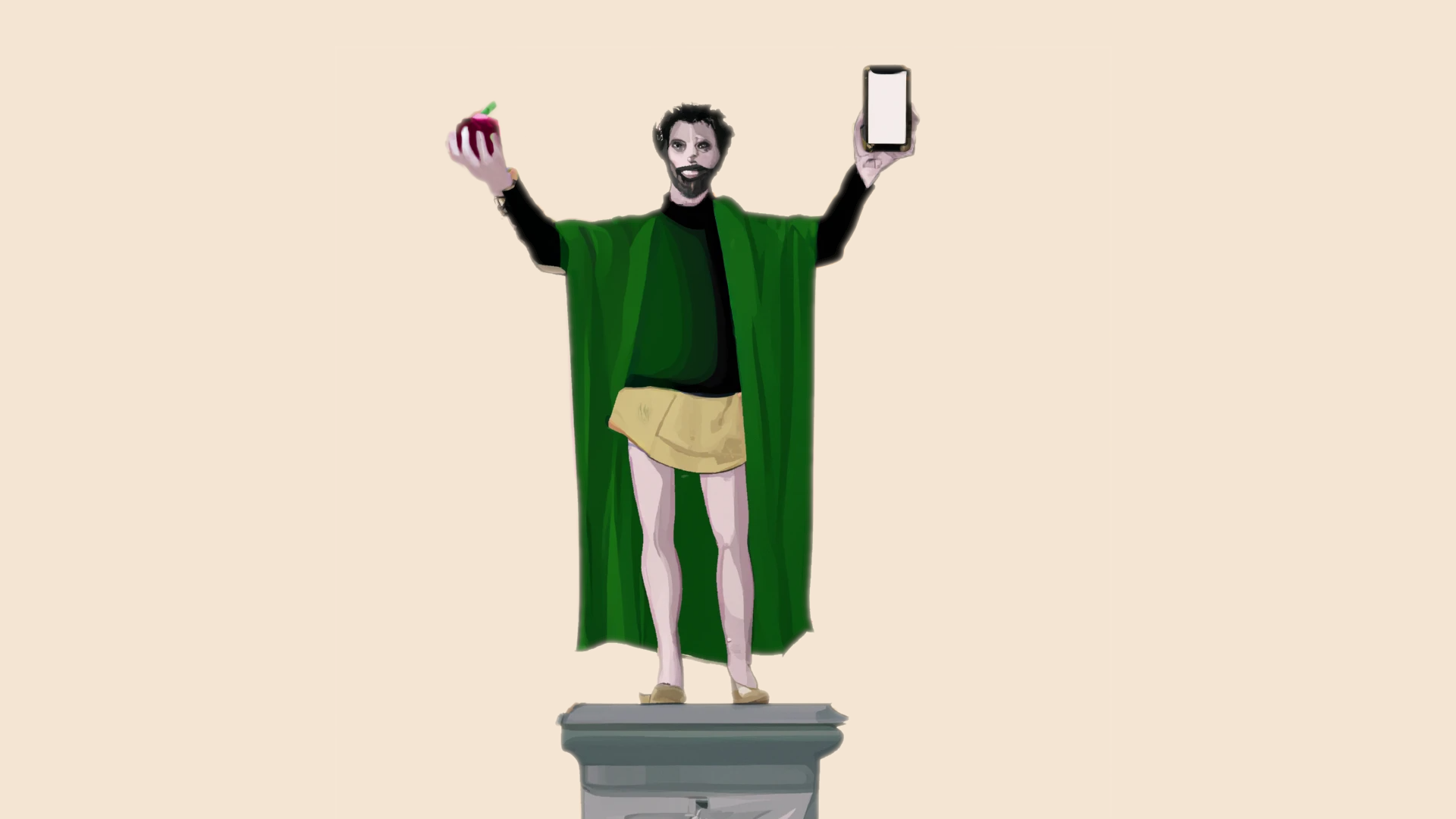Neil Gaiman is known as one of the greatest living authors. In ’98, when he pitched his publisher the idea for American Gods, it was approved from a short description. Were American Gods the first book of an unknown writer, guaranteeing its publication would have taken more than a letter with an idea.
Even 25 years ago, Gaiman was branded as a world-class author. If he wasn’t broadly a household name yet, he was well known among those who mattered to a publisher—people who would buy his books.
A talentless hack who is also famous has a better chance of getting published, and selling a hundred thousand copies than an unknown author as talented as Gaiman. Fame drives sales like a business superpower that can compensate for a lack of talent and vision. This is true in nearly every industry, not just publishing.
People Hero Worship
Consumers seem hungry for someone to step out in a black turtleneck, one arm extended, to hand out the next generation of phones. Fame works like a snowball rolling downhill, facilitating more fame. Profiles of the crazy ones who changed the world are jumped at by readers and writers alike.
The world isn’t filled with Steve Jobs’, in part because Steve Jobs wasn’t the god-like man we know. The picture painted by a marketing team, media, and eager consumers isn’t real. Jobs was just a man, not the technical thinker he’s often portrayed as.
Like all larger-than-life figures, Jobs is a tapestry. Threads of reality, woven with points of business professors, human ideals, moral lessons, and yarns from a marketing department. Jobs standing on a stage announcing the iPod was nearly as much a construct as Zuse standing on Mount Olympus.
A charismatic figure can add a few trillion in economic value to a business. Steve Wozniak creating a microcomputer capable of being the Apple I appears predestined. Without Jobs, Wozniak probably would have been Linus Torvalds, a titan of computing who built a technology many rely on but few can name.
Everyone wants to be a flashy Steve Jobs figure in the modern tech entrepreneur economy. It takes less talent to be a mystical public figure than to create something valuable. Media outlets like Forbes prop up many frauds.
Here are a few alumni of the Forbes ’30 under 30′
- Caroline Ellison, pleaded guilty to wire and securities fraud.
- Obinwanne Okeke, jailed for ten years for masterminding an $11 million email scam.
- Charlie Javice, being sued by JPMorgan Chase for faking customer records.
- Martin Shkreli, sentenced to 7 years in prison for fraud.
That’s just scratching the surface. Elizabeth Holmes, who wore a black turtleneck, a not-so-subtle nod to the a Apple co-founder, made Forbes ’30 under 30′ list for her blood-testing startup Theranos. Holmes is currently awaiting prison for fraud because the technology behind Theranos never worked.
It’s All Hype
In the land of “visionary” tech entrepreneurs, hype is power, driving sales, attracting funding, and reducing scrutiny. Companies masquerade as tech-heavy when they are not. WeWork’s business model was always subleasing office space, but it reached a $47 billion valuation pretending it was a tech firm.
Technology scales efficiently, unlike restaurants or real estate. Investors want to invest in firms that will scale. Entrepreneurs want funding. Business consultants and columnists liked saying every company is a tech company.
A lot of companies pretend to be in tech. An automotive leasing company puts on the corporate turtleneck to raise funds and self-promote as a “fin-tech startup”. They have no tech because they have no Wozniak. They don’t even have a Jobs who plays the part of a visionary well; they have a PR firm and stolen valor.
As said, talentless hacks who start famous have a better chance of getting published than an unknown author as talented as Gaiman. So now everyone is trying to be famous. If you want to stop seeing headlines of entrepreneurs defrauding investors, and customers, stop letting them get famous before they’ve created anything.
Article by Mason Pelt of Push ROI. First published in PushROI.com on February 3, 2023. Image created using AI.




